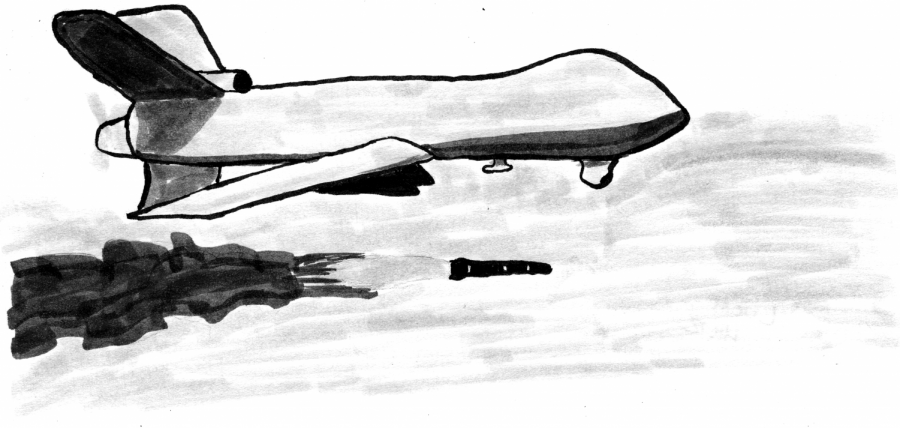Drone warfare is unprincipled
February 2, 2018
At 10:45 a.m. March 17, 2011 in North Waziristan, a northern region of Pakistan, the first of at least two drone missiles struck the target location, instantly killing everyone within it and sending their mutilated corpses flying.
Blood and body parts scattered the ground as more hellfire missiles rained down, leaving in their wake a horrific scene of flame and gore, covered by the softly falling dust.
The U.S. government claims drone warfare enables the “targeted killing of terrorists, with minimal downsides or collateral impacts,” according to James Cavallaro in Living Under Drones September 25, 2012.
Except it wasn’t only terrorists those missiles killed. It was also 35 innocent civilians negotiating peace, according to a September 2012 Stanford Law article.
The military decided to strike that meeting due to the presence of four Al Qaeda members.
To kill four terrorists engaging in peaceful negotiations, the U.S. military murdered almost three dozen innocent civilians.
This is not an isolated incident. The Bureau of Investigative Journalism estimates that 800 of the 2,436 terrorist kills reported by the White House were actually civilian casualties. At least 150 were children.
It is emblematic of a wider issue. The U.S. government’s lack of transparency, accountability and responsibility.
The government has yet to provide any information on the decision-making process that goes into picking targets. These strikes constitute murder without trial or significant proof of guilt.
At best, the U.S. government does not know who they’re killing, and at worst they are making a conscious decision to sacrifice disturbing numbers of civilians.
Drone warfare also has a psychological impact on civilians. In a landmark 2012 study on the psychological effects of drone warfare on civilians performed by Stanford and NYU Law: psychologists and medical personnel interviewed 69 civilians affected by drone warfare in Pakistan.
They identified constant fear, anxiety, PTSD and stress as being frequent psychological impairments due to the unpredictability and lack of control they have over the situation. Some people report hallucinating drones in nightmares and the fear of strikes prevents children from going to school and escaping poverty.
University campuses have often been a catalyst for political change, and without transparency or accountability, the U.S. will continue to recklessly and callously destroy the communities of those we claim to protect.
So I call on you, fellow students, to demand that the U.S. government end this campaign of terror on the innocent people of Pakistan.







